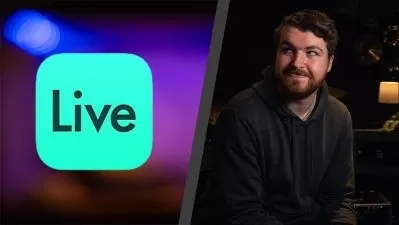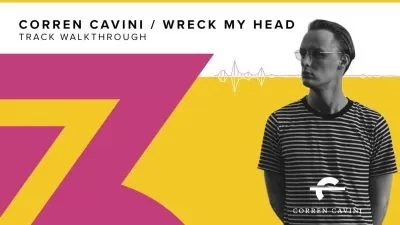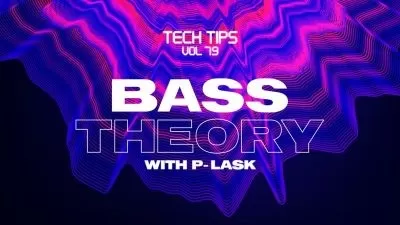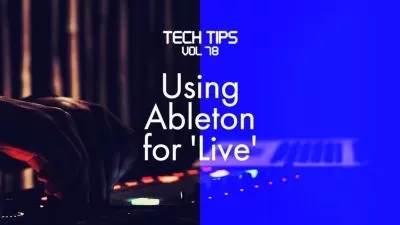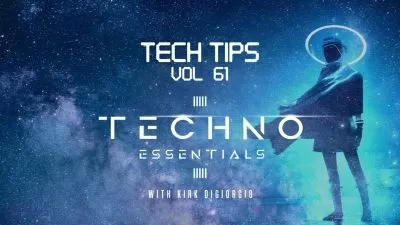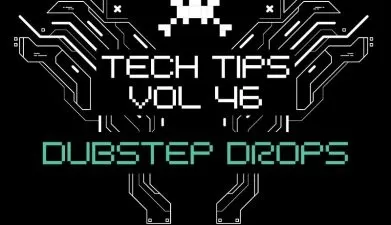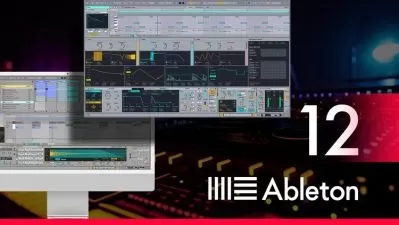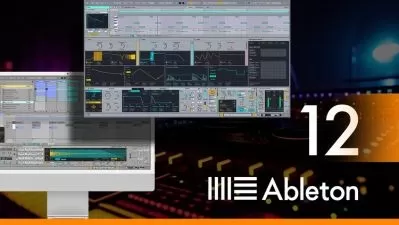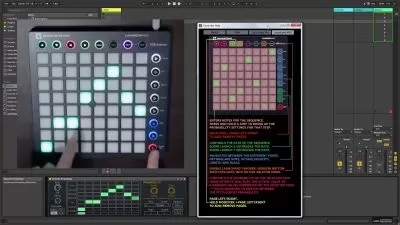About Ableton LiveLearn More
Ableton Live is an audio software suite for composing, editing, arranging, mixing, and mastering audio tracks. Used by music professionals everywhere, this software is very popular for creating EDM tracks. It even has an interface that lets you turn your computer into a live instrument. If you want to create original tunes or soundtracks, Udemy has a wide selection of Ableton courses to get you started or boost your existing music making skills.
Sort by:
Sorting
The newest
Most visited
Course time
Subtitle
Filtering
Courses
Subtitle
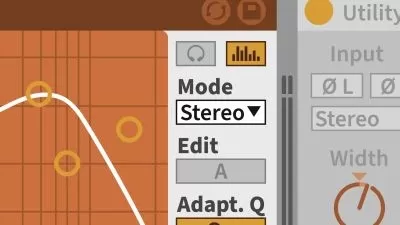
Linkedin Learning


Rick Schmunk
Ableton Live 12 Essential Training 9:09:54
English subtitles
11/24/2024
Frequently asked questions about Ableton Live
Ableton Live is a versatile digital audio workstation (DAW) that caters to live performance. In addition to its live audio capabilities, Ableton Live allows users to record, compose, arrange, mix, and master tracks. Musicians who use Ableton also have access to a number of in-house synthesizers, samplers, and other virtual instruments that provide a high degree of creative flexibility. Its extensive array of different effects is also a huge benefit, as they easily apply to instruments. A popular platform for both live and studio EDM and dance music, Ableton Live is widely used by DJs as well. This is due to its array of built-in controls such as crossfading, beatmatching, and other turntable effects. Ableton Live comes in three editions: Intro, Standard, and Suite, each with an increasing number of features and functionalities.
Ableton Live is a great choice for beginners. It has a streamlined interface which, with a bit of dedication, will quickly begin to make sense even to those without any digital audio workstation experience (DAW). Ableton Live features several professional-grade virtual instruments and effects that allow beginners to start experimenting and making music right away. If you have had experience working with another intro DAW software, the concepts will translate cleanly to Ableton Live. Things like how to designate inputs, outputs, and route signal chains are all as simple as possible. If you are stuck on something, there are some great resources like Udemy courses to help you solve it. Another thing that makes Ableton Live such an excellent platform for beginners is the lack of nested features like sub-menus and hidden tools. Everything is immediately available and visible, making it intuitive to use.
Ableton Live is a gold standard for creating and performing EDM, electronic, and other types of music. Though it is a fully capable digital audio workstation (DAW) in terms of recording — and Ableton 11 includes multitrack comping as well — it is these live features that really set it apart from DAWs on the market. FL Studio is another DAW that’s popular for electronic musicians. Geared toward mobility, FL Studio allows any musician with an iPhone, tablet, or laptop to record and produce high-fidelity audio tracks. It has a live mode, though Ableton Live is typically the go-to choice for live electronic music. Pro Tools and Logic Pro are other gold standards for DAWs, with Logic Pro being an Apple-native software unavailable to Windows users. Both offer incredibly versatile recording, editing, mixing, virtual instruments, effects processing, and composition tools. Pro Tools is often the choice for professional studio mixers, while Logic Pro X usually appeals more to musicians.
DAW stands for Digital Audio Workstation. This is software that allows you to record, edit, and produce audio files, with the most widespread application being music production. DAWs convert the technical aspects of software recording into intuitive, easily understood visual interfaces, with the purpose being to put as few barriers as possible between the user and the recording process. Ableton Live stands out because it offers live performance features. Its in-house synthesizer and virtual instrument suite is an industry-standard. It also has expanded its functionality to include multitrack comping, which was the last area differentiating it from competitors like Pro Tools and Logic Pro.
Music production is the process of creatively guiding a piece of music from concept to completion. This can include a single track or a full record. As a music producer, you may also be the songwriter and performer — but the production aspect includes all the steps you’ll take to make it a final product. Arranging the song, deciding the best way to record it, editing the recorded tracks, and either guiding or spearheading the mixing process are all a part of production. You can group technical and artistic choices like equalization, compression, reverb, and other effects into the music production category. They all contribute to the overall decisions that make the track sound great. If you're an aspiring music producer looking to enhance any of those skills, you'll definitely want to check out Udemy's Ableton Live courses. These complete guides are perfect for getting beginners on track to produce great music, even on laptops with minimal equipment.





